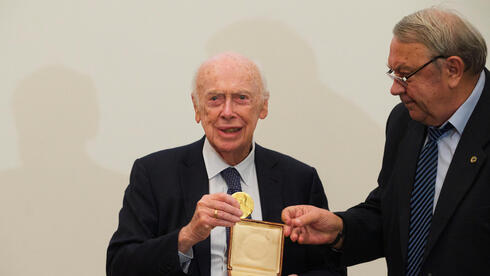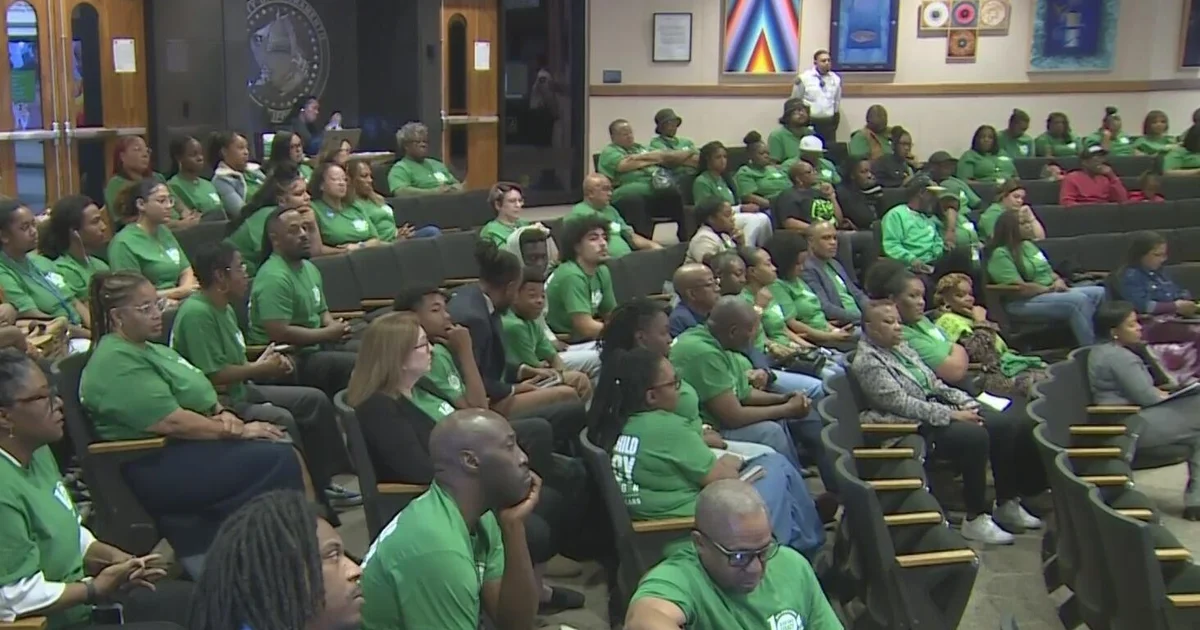Copyright ynetnews

James Watson, the brilliant yet controversial American biologist whose 1953 discovery of DNA’s double-helix structure ushered in the modern era of genetics and laid the foundation for the biotechnology revolution, has died at 97. Cold Spring Harbor Laboratory on Long Island, where Watson worked for much of his career, announced his death. The New York Times reported that he died this week at a hospice in Long Island. Watson’s reputation, once defined by one of the greatest scientific breakthroughs of the 20th century, was later tarnished by a series of racist comments about genetics and intelligence that led to his public condemnation. The discovery that changed science forever Working with British physicist Francis Crick at Cambridge University, Watson deciphered the elegant double-helix structure of DNA, showing how genetic information is copied and transmitted from generation to generation. The two, along with Maurice Wilkins, received the 1962 Nobel Prize in Physiology or Medicine for the discovery, a moment that paved the way for genetic engineering, gene therapy, and nearly every modern DNA-based technology. Watson chronicled the discovery in his 1968 memoir The Double Helix, a candid and often controversial account that portrayed the race to decode DNA as one driven by ambition and rivalry as much as by curiosity. Crick and Wilkins criticized the book as self-serving and disrespectful, while others hailed it as one of the most honest portraits of scientific competition ever written. Watson and Crick were also accused of relying on data collected by crystallographer Rosalind Franklin without giving her due credit — a controversy that continues to shadow their legacy. In The Double Helix, Watson himself admitted that science is “torn between ambition and fair play.” Controversy and fall from grace In 2007, Watson caused global outrage when he told The Sunday Times of London that he believed genetic studies showed Africans were “less intelligent” than Europeans. He was widely condemned, stripped of honorary titles, and forced to retire from Cold Spring Harbor Laboratory. Although he later apologized, he repeated similar claims in a 2019 documentary, insisting that differences in IQ test results between races were “genetic” — a view overwhelmingly rejected by the scientific community. James Dewey Watson was born in Chicago on April 6, 1928. He earned his bachelor’s degree in zoology from the University of Chicago in 1947 and a Ph.D. in genetics from Indiana University. In 1951, he joined the Cavendish Laboratory at Cambridge, where he met Crick and began the pursuit that would define his life. Their model — two intertwined spirals joined by chemical “rungs” known as nucleotides — revealed how DNA could replicate itself with astonishing precision. “It has not escaped our notice,” they wrote in their understated 1953 paper, “that the specific pairing we have postulated immediately suggests a possible copying mechanism for the genetic material.” That single line, often described as “the most modest statement in the history of biology,” marked the birth of molecular genetics. A life beyond the double helix Watson joined Harvard University in 1956, where his brash personality polarized colleagues but attracted a new generation of scientists eager to explore molecular biology. In 1968, he became director of Cold Spring Harbor Laboratory, transforming it from a modest research center into a world-class hub for genetics and biotechnology. In 1990, he was appointed head of the Human Genome Project, the massive international effort to map all human DNA. He resigned soon after, opposing plans by U.S. health officials to patent gene sequences, arguing that “the genome belongs to everyone.” Watson later allowed his own genome to be fully sequenced and made public — the second person ever to do so — saying fears over “genetic privacy” were overblown. He often said his proudest achievements were his books, not his discoveries: “My heroes were never scientists,” he told Discover magazine in 2003. “They were writers — Graham Greene and Christopher Isherwood. You know, good writers.” Friends described Watson as both brilliant and abrasive — “the tough Irishman,” as biologist Mark Ptashne put it. “He figured out how to use that persona to lead America into the molecular biology age.” Though known for sexist remarks in public, Watson was also credited with mentoring and promoting several female scientists, including Nancy Hopkins of MIT, who said, “I don’t think I’d have had a career in science without his support. He championed women in science more than people realize.” Watson is survived by his wife and two sons. His life, marked by discovery and controversy, remains a testament to both the heights and the human flaws behind scientific genius.



